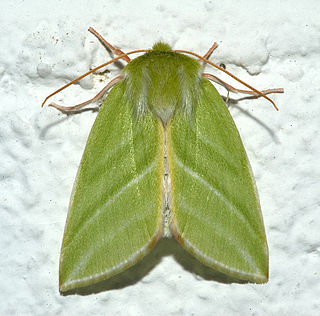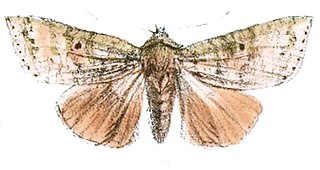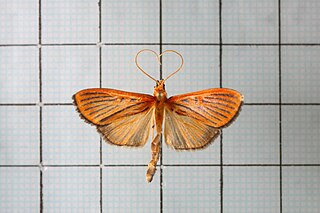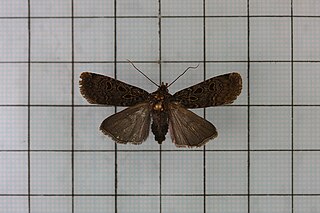| Tympanistes | |
|---|---|
 | |
| Tympanistes testacea | |
| Scientific classification | |
| Kingdom: | |
| Phylum: | |
| Class: | |
| Order: | |
| Family: | |
| Subfamily: | |
| Genus: | Tympanistes Moore, 1867 |
Tympanistes is a genus of moths of the family Nolidae.
A genus is is a taxonomic rank used in the biological classification of living and fossil organisms, as well as viruses, in biology. In the hierarchy of biological classification, genus comes above species and below family. In binomial nomenclature, the genus name forms the first part of the binomial species name for each species within the genus.

Moths comprise a group of insects related to butterflies, belonging to the order Lepidoptera. Most lepidopterans are moths, and there are thought to be approximately 160,000 species of moth, many of which have yet to be described. Most species of moth are nocturnal, but there are also crepuscular and diurnal species.

Nolidae is a family of moths with about 1,400 described species worldwide. They are mostly small with dull coloration, the main distinguishing feature being a silk cocoon with a vertical exit slit. The group is sometimes known as tuft moths after the tufts of raised scales on the forewings of two subfamilies, Nolinae and Collomeninae. The larvae also tend to have muted colors and tufts of short hairs.













